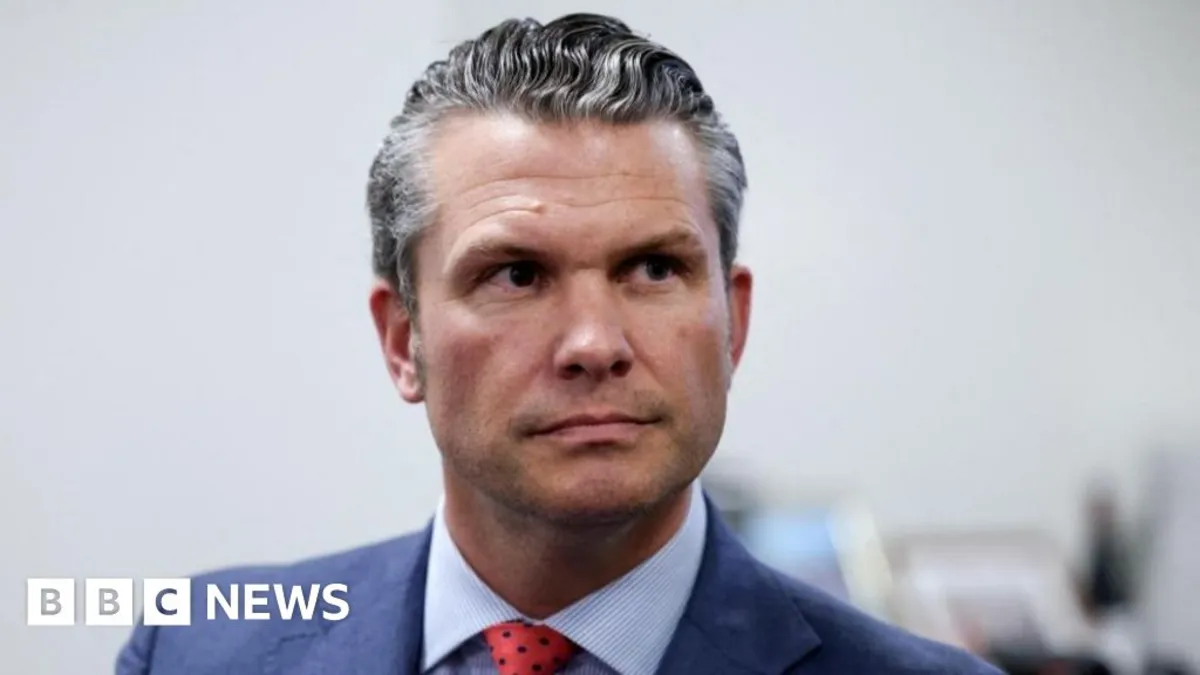
The recent revelations surrounding US Defense Secretary Pete Hegseth and his involvement in a private group on the Signal app have raised significant concerns regarding the handling of sensitive military information. According to sources familiar with the communications, as reported by the BBC's US partner CBS, Hegseth shared crucial details about US air strikes on Yemen in a second private group on March 15. This group included not only Hegseth's wife, Jennifer, but also his brother and personal lawyer, raising questions about the appropriateness of sharing such information with individuals outside the military hierarchy.
The messages exchanged within this private group reportedly contained flight schedules for American F/A-18 Hornets tasked with executing strikes on Houthi targets. This development follows the earlier disclosure of another Signal group, which was used to discuss sensitive US military operations. The White House has asserted that no classified information was shared in either group, a claim that has been met with skepticism from various critics, including former US defense officials.
Hegseth's wife, Jennifer, a former producer at Fox News, holds no official position in the Pentagon, which raises further questions about her involvement in military discussions. Critics have pointed out that including family members and personal associates in sensitive conversations could potentially jeopardize the safety of US personnel engaged in military operations. The second Signal group, titled "Defense | Team Huddle," was reportedly created by Hegseth himself, diverging from the earlier group that was accidentally revealed by Jeffrey Goldberg, the editor of the Atlantic magazine.
The controversy surrounding Hegseth comes at a time when the US has been actively conducting air strikes in Yemen, which are framed as punitive measures against Houthi attacks on commercial vessels in the Red Sea — a vital corridor for international trade. Since November 2023, the Houthis have intensified their assaults, targeting numerous merchant ships with missiles, drones, and small boat attacks, resulting in casualties and significant disruptions.
In light of these events, Hegseth recently dismissed three senior officials for what he deemed unauthorized disclosures, a claim those officials have contested. John Ullyot, a former Pentagon spokesperson who resigned last week, described the situation within the department as one of total chaos, emphasizing that such dysfunction is detrimental to the leadership expected by the president.
In a counter-response, Sean Parnell, the current chief spokesman for the Pentagon, accused the media of targeting individuals loyal to President Trump. Parnell reiterated the White House's stance that no classified information was leaked through the Signal conversations.
The humanitarian implications of the US air strikes have also come under scrutiny, especially following an attack on an oil terminal in north-western Yemen that reportedly resulted in at least 74 fatalities and 171 injuries, as per the Houthi-run health ministry. This incident has prompted the Houthi-led government to label the strikes as a war crime, further complicating the narrative surrounding the conflict and the US's role in it.
As the situation develops, the implications of Hegseth's actions and the ongoing military operations in Yemen will likely continue to be a focal point of debate, raising essential questions about transparency and the safeguarding of sensitive military information.